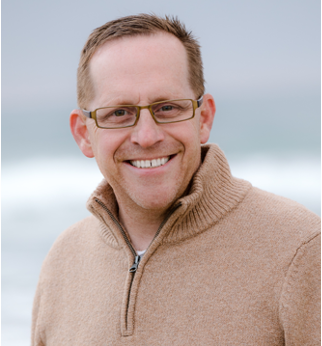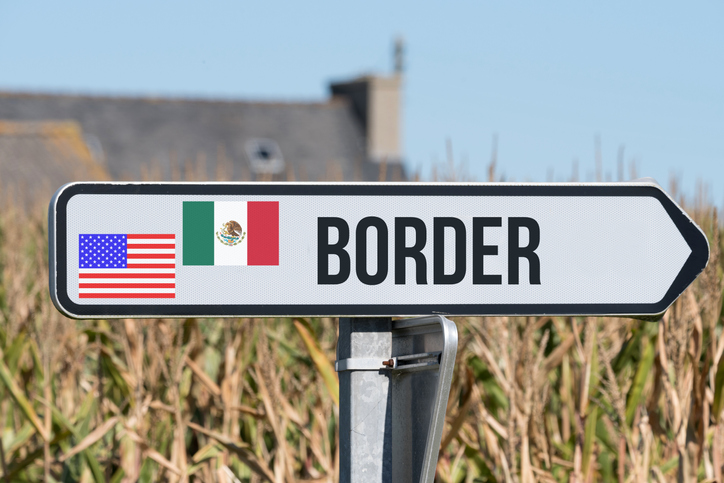Mexico's economic outlook and GDP growth are essential indicators of the country's financial health and its impact on the global economy. With a GDP of slightly over $1.7 trillion, Mexico is a key player in the global economy. Its economic outlook and growth patterns provide vital clues to the country's financial health and international trade influence. Analyzing these factors provides valuable insights into the current state of Mexico's economy, the influencing factors, the impact of economic activities on its GDP, challenges, opportunities, and forecasts for the future.
The Current State of Mexico's Economy
Overview of Mexico's GDP
Mexico, as one of the largest economies in the world, has a Gross Domestic Product (GDP) that reflects the total value of goods and services produced within its borders. The GDP growth is a vital metric that measures the overall economic performance of the country.
Primary Sectors Contributing to Mexico's GDP
Mexico's economy is driven by three main sectors: agriculture, industry, and services. According to 2022 data from the World Bank, these sectors contribute as follows:
- Agriculture, Forestry, and Fishing: These activities make up 4.1% of Mexico's GDP. This sector, often referred to as the primary sector, encompasses the fundamental activities of farming, logging, and fishing.
- Industry: Representing the secondary sector, industry includes manufacturing and production activities, contributing 32.1% to the GDP. This sector is critical for the creation of goods and is a major pillar of economic growth.
- Services: The services sector, known as the tertiary sector, is the largest contributor to the GDP, making up 58.8%. It includes diverse activities such as finance, healthcare, hospitality, and education, highlighting the importance of service-oriented activities in the economy.
This distribution underscores the country's significant reliance on both industrial production and an extensive range of service offerings.
Mexico's Economic Activities
The Mexican economy encompasses a diverse range of economic activities, including the service sector, manufacturing, and exports. Understanding these activities is crucial in evaluating the economy's strength and potential for growth.
The Mexican Economic System
The Mexican economic system operates within the framework of free trade agreements, foreign direct investment, and economic freedom. These elements significantly influence the country's economic trajectory and global trade relationships.
Factors Influencing Mexico's Economic Outlook in 2024
Mexico's Economic Growth Forecasts
Forecasting economic growth involves analyzing various indicators such as GDP projections, income distribution, and private investment. These forecasts provide valuable insights into the country's economic trajectory for 2024.
Export and Import Trends
Import and export trends play a critical role in shaping the economic outlook. Trade dynamics, including free trade agreements and export-import ratios, impact the country's economic performance and global trade relationships.
Free Trade and the Economy
Free trade agreements have a significant influence on economic activities and global trade relationships. Understanding the impact of free trade on the economy is essential for evaluating its overall outlook.
Impact of Economic Activities on Mexico's GDP
The Agricultural Sector
Though agriculture represents a small share of Mexico's GDP, it remains essential to the nation’s economic landscape. Beyond contributing to development, this sector is a vital source of employment and plays a key role in international trade, especially with the United States. Below is a closer look at agriculture’s economic impact, core activities, and government support:
- Key Agricultural Activities
- Farming, forestry, and fishing are key agricultural activities that contribute significantly to the country's economy.
- Employment in Agriculture
- Agriculture employs approximately 12% of the labor force, making it a critical sector for job creation.
- Strengthening Trade Ties
- The agricultural sector strengthens trade relations, particularly with the United States, through key exports like tomatoes and tropical fruits.
- Core Agricultural Exports
- The country's top agricultural exports include fruits, vegetables, beverages, and baked goods, driving significant trade revenue.
- Government Investments
- Federal investments in core agricultural products have allowed the agricultural sector to expand, even during economic downturns.
Manufacturing Sector and Economic Growth
Manufacturing plays a crucial role in the economic landscape, driving growth and enhancing global trade connections.
Below, we explore the primary manufacturing sectors and their impact on economic development:
- Automotive Manufacturing
- The automotive industry accounts for 3.5% of Mexico’s GDP and 20% of its manufacturing GDP, employing over one million people.
- Aerospace Industry
- Aerospace contributes another 3.5% of GDP, with 1.4 million direct and indirect jobs, and is a rapidly growing sector in the country.
- Electronics Manufacturing
- Mexico is the 8th largest producer of electronics globally, manufacturing consumer goods such as computers, televisions, and communication devices.
- Textiles Industry
- With 3% of the country’s manufacturing GDP, the textiles industry produces both traditional apparel and technical materials for international markets.
- Robust Supplier Networks
- The manufacturing sectors, especially automotive and aerospace, benefit from a strong network of suppliers that enhance production capabilities.
- Manufacturing and Global Competitiveness
- These manufacturing subsectors position the country as a major player in global trade, boosting both economic resilience and competitiveness.
Logistics and Supply Chain in Mexico
The country's well-developed logistics and supply chain infrastructure directly boosts global trade competitiveness, enabling smooth cross-border operations with key partners like the U.S. and Canada. Efficient logistics management also contributes significantly to economic output and trade performance.
Understanding Adjustments and Methodologies in Mexico’s GDP Data
Beyond identifying which sectors drive economic growth, it’s important to understand how Mexico's GDP is measured, adjusted, and updated. These methodologies not only ensure accuracy but also provide investors and businesses with reliable insights into the country’s economic performance.
Supplementary Adjustments Made to GDP Data
Mexico's GDP figures undergo supplementary adjustments to better capture true economic performance. These adjustments are essential because they eliminate distortions caused by seasonal patterns or inflation.
- Seasonal adjustments account for recurring fluctuations in agriculture and tourism.
- Inflation adjustments convert nominal figures into real Mexico GDP, offering a clearer view of actual growth.
- Benchmark revisions align data with updated industry and trade statistics.
Several core measurement practices also ensure Mexico's GDP reflects the real economy.
Key Adjustments and Measurements in Mexico’s GDP Data
Mexico's GDP is shaped by specific measurement practices that help align reported figures with international standards. These practices make comparisons across countries more meaningful.
- Seasonal adjustment to smooth out quarterly volatility.
- Deflation techniques to strip out inflationary effects.
- Currency indexing for exports and imports to reflect exchange rate changes.
Behind these adjustments lies the official methodology that determines how Mexico's GDP is calculated.
Methodologies Behind Mexico's GDP Calculation
The National Institute of Statistics and Geography (INEGI) applies frameworks from the System of National Accounts (SNA) to calculate Mexico's GDP. This internationally recognized methodology ensures that the country's economic reporting is comparable to that of other major economies.
Like most countries, Mexico regularly revises its GDP estimates as new data becomes available.
Revisions and Updates to Mexico’s GDP Data
These revisions help refine Mexico's GDP accuracy over time:
- Preliminary estimates based on partial data.
- Quarterly revisions will occur as more sector reports are published.
- Annual updates that incorporate finalized statistics from multiple industries.
INEGI also releases quarterly breakdowns of Mexico's GDP, giving businesses and policymakers a closer look at economic performance across sectors.
Coverage of Quarterly GDP by Sector and Activity
These quarterly reports provide critical insights into short-term movements in:
- Primary sector (agriculture, forestry, fishing).
- Secondary sector (manufacturing, construction, energy).
- Tertiary sector (services, trade, finance).
To further improve clarity, Mexico's GDP relies on a standardized classification of economic activities.
How Economic Activities Are Classified for Mexico's GDP
Economic activities are grouped into three broad categories when calculating Mexico's GDP:
- Primary sector – resource-based activities.
- Secondary sector – industrial and manufacturing output.
- Tertiary sector – services, trade, and finance.
This classification system aligns with international reporting standards and highlights which sectors are most dynamic.
Challenges and Opportunities in Mexico's Economic Sector
Cross-Border Logistics and Just-in-Time Fulfillment
Cross-border logistics and just-in-time fulfillment present both challenges and opportunities for the economic sector. Leveraging efficient logistics solutions and supply chain management can enhance the country's economic competitiveness. Companies like Visigistics have established close relationships within the region to overcome many challenges in cross-border logistics.
Warehouse Management and Economic Activities
Effective warehouse management is crucial for sustaining business operations. Improving warehousing capabilities helps optimize inventory control and ensure a smooth flow of goods, leading to greater overall efficiency.
Mexico's Position in Latin America's Economy
As one of the largest economies in Latin America, the country encounters both significant opportunities and challenges. Building stronger regional connections and pursuing joint initiatives can amplify its influence across the continent.
Forecasts for Mexico's Economic Sector and Its Impact on the Global Economy
Mexico as a Key Player in the World Economy
The industrial sector establishes the country as a major player in the global market. Gaining insight into its core activities and growth forecasts reveals its role in shaping global trade and market trends.
World Bank's Projections for Mexico's GDP Growth
The World Bank's projections for GDP growth offer critical insights into the country's growth potential. Analyzing these forecasts provides valuable foresight into their influence on the global economy in the coming years.
Mexico's Economic Sector and Its Influence on Global Trade
The financial sector significantly influences global trade dynamics. As a major exporter and pivotal player in various industries, the country's financial activities have far-reaching implications for the global economy and international trade relationships.
Learn About Business Opportunities in Mexico
We understand that expanding into new markets and managing cross-border operations can feel overwhelming.
At Visigistics, we simplify the process by providing expertise in logistics, manufacturing, and just-in-time fulfillment, supported by strong relationships within Mexico that help businesses succeed.
Let us show you how to optimize your supply chain and gain a competitive edge—call us today to get started.
Frequently Asked Questions
What is the current economic outlook for 2024?
Growth is expected to continue, supported by stable investment, trade activity, and solid financial fundamentals.
What factors contribute most to growth?
Key drivers include public investment, cross-border trade, logistics efficiency, and strong ties with the U.S. and Canada.
What is the GDP growth trajectory?
GDP has shown steady increases, keeping the country among the world’s largest economies in nominal terms.
How does the economic system function?
It operates through a mix of market-oriented policies and government support to maintain stability and growth.
What role does public investment play?
Spending on infrastructure, energy, and development projects continues to strengthen long-term competitiveness.
Which sectors have seen notable expansion?
Growth has been especially strong in warehousing, imports/exports, and manufacturing-related investments.
Will the economy keep progressing in the coming years?
Yes. Forecasts point to continued expansion, with strategies in place to reinforce economic fundamentals and global influence.
How has the country attracted investment, and what benefits do businesses gain?
Favorable trade agreements, a skilled labor force, and proximity to the U.S. have positioned it as a top destination for manufacturing and supply chain operations. Companies benefit from easier market access, lower logistics costs, and reliable production networks.
How do trade agreements like NAFTA and USMCA impact growth?
They simplify cross-border trade, attract foreign investment, and integrate supply chains across North America. This has boosted competitiveness in industries like manufacturing, agriculture, and services while reinforcing long-term stability.





